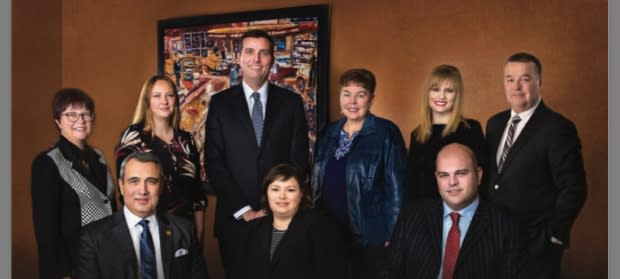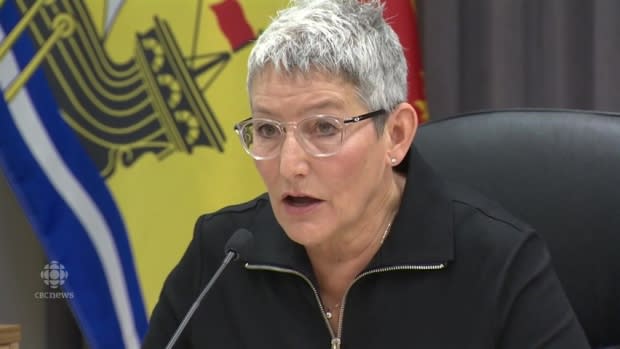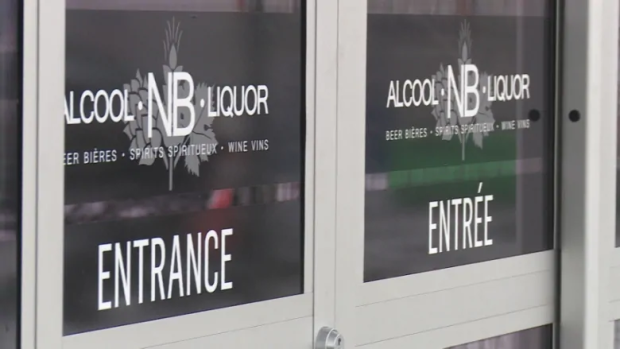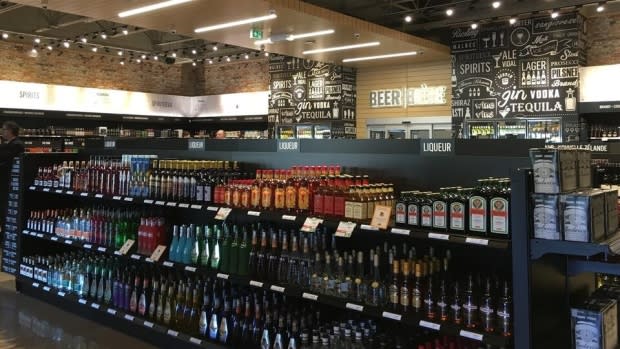Fixing fiscal fumble at NB Liquor cost agency $404K
A recurring error by NB Liquor over several years, where senior executives and board members lost track of when their fiscal year ended, cost the agency — and the province — more than $404,000 over seven days in 2018, CBC News has learned.
The money had to be paid out in profit-sharing bonuses to NB Liquor employees, including senior executives, after an unbudgeted 53rd week was added to NB Liquor's fiscal year in a scramble to adhere to legal requirements.
The extra week of sales caused artificially high profits for the 2018 year, which in turn triggered extra profit-sharing payments to employees.
NB Liquor wrongly budgeted the week of March 26-April 1 to begin its 2019 fiscal year. It had to reassign that week from the first week of the 2019 fiscal year to the last week of the 2018 fiscal year.
NB Liquor acknowledges what happened but denies the bonus money generated was in any way self-serving.
"The accredited professionals who made the decision would not and did not risk their designations and reputation by adding the 53rd week for personal gain," NB Liquor spokesperson Nicole Picot wrote in an email.
"Assuming so would be unreasonable."

NB Liquor has operated profit-sharing plans for employees since 2015.
It began with unionized employees who agreed to limit wage increases in exchange for bonus pay. It spread to senior executives over the following two years.
Results of the profit-sharing plans have fluctuated significantly from year to year.
Organizational errors and misunderstandings
In the 2017 fiscal year — the second year for bonuses — profit targets were set high at $169.8 million, but sales fell short of that number. Bonus payments shrunk to just over $100,000, just a couple of hundred dollars per employee.
In 2018, NB Liquor lowered the profit target employees had to beat to $165 million. Between that and the error over when the corporate year ended, bonuses ballooned to $978,750.
Bonuses this year were back down to $334,165.

Jamie Agnew, CUPE local 963 president, said it worked well in the first and third years but not so well in the second and fourth years.
But a large portion of the record bonuses paid in 2018 were caused by organizational errors and misunderstandings about the fiscal year — not exceptional profits.
NB Liquor does not use March 31 as the end of the fiscal year, as is the case for most government departments.
Instead it uses a retail financial calendar and is required by legislation to finish its fiscal year on whatever Sunday comes closest to March 31.
In any given year it means its financial year must end somewhere between March 28 and April 3, depending on which date is a Sunday.
But NB Liquor's board of directors and management team lost track of that requirement three years ago and began using closing dates outside of the required list.
Extra week added
In 2016, its financial year closed on March 27. In 2017, it closed on March 26.
In 2018, it budgeted for a 52-week fiscal year ending on March 25 — another wrong date — and then set its quarterly and annual profit targets for employee bonuses accordingly.
For the full 52-week budget — ending on March 25, 2018 — NB Liquor set the $165-million profit target and began the year oblivious to its mistake.

Records show the first, second and third quarters of the 2018 fiscal year proceeded much like NB Liquor expected. It wasn't until well into the fourth quarter when someone realized that March 25 was not a legal end date for the corporation.
"[NB Liquor] discovered the fiscal period end date being used did not coincide with the Act, and as a result, the decision was made to correct it," wrote Picot. "As such, the additional week was added to the fiscal year."
Picot said the discovery of the three-year-long error, and discussions on how to fix it, occurred in February and March 2018, just weeks before the year ended. The discussion included NB Liquor's management and its board of directors and in consultation with the province.
No equivalent decision was made to adjust the budget or profit targets to account for the extra week, and that had a major effect.
Torrent of bonus pay
The 53rd week of sales helped push profits for the year $3.35 million above the $165-million target, unleashing a torrent of bonus pay.
Union members, who had qualified for $471,549 in bonuses as of March 25, earned an extra $390,982 the following week as profit targets fell.
An extra $13,754 was paid to executive and management personnel, but who got that money is unknown.
Picot does claim moving one week of sales between years also saved NB Liquor some bonus money because it caused it to miss profit targets for the first quarter of 2019 but did not give an amount.

A request to interview a representative of NB Liquor's board of directors to ask why 2018 profit targets were not raised to reflect an extra week of sales was declined.
Matthew Wegener, a UNB accounting professor, said the entire episode at the end of the 2018 fiscal year was a major financial event and NB Liquor should have disclosed what happened in its financial reporting last year.
"This situation is clearly material," said Wegener. "So you're adding an extra week and that adjustment and the fact that there would be bonus implications becomes material.
"I think it should be pretty obvious if you have an extra week of sales its going to be easier to make your (bonus) target."
There is no note in NB Liquor's 2018 annual report explaining the unusual series of events or the bonuses they generated for employees.
Credits and good management
A press release issued by NB Liquor on May 4, 2018 about the period mentions a $9-million jump in sales during its final quarter, but credits good management for the increase.
"NB Liquor has experienced a great fourth quarter," then NB Liquor president Brian Harriman said about the final chaotic weeks of the 2018 fiscal year.
"We have grown the business by $9.1 million in sales versus the same quarter last fiscal. Fourth-quarter results were higher than last year's fourth quarter which was driven by well-planned marketing programs like the Expérience Wine program and our everyday beer price offer."
Wegener said the everything emerging now suggests that description was misleading.
"It seems more about impression management than it is about actual transparency. To just say there is an 11 per cent growth with no mention of an added week is a little bit suspect. So, yes, somebody else should be looking into this and say … were these bonuses earned."

